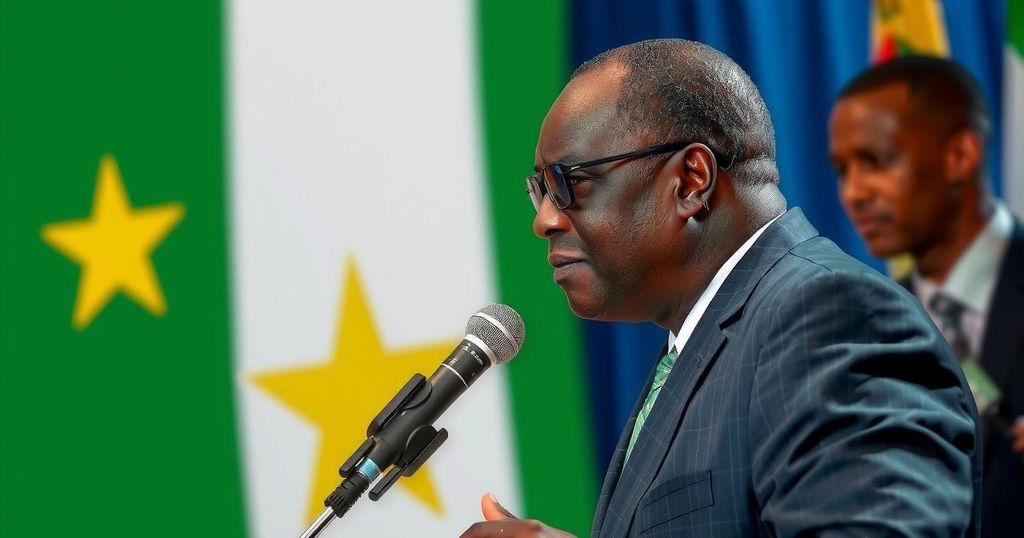Senegal is conducting parliamentary elections with over seven million eligible voters, as President Faye seeks a majority to enact reforms promised in his campaign. Dissent from an opposition-led parliament has prompted Faye to dissolve the assembly and call for these snap elections. Economic challenges and an emerging opposition alliance complicate Faye’s ambitions, with the outcome critical for the implementation of his agenda.
On the backdrop of significant economic challenges, polls opened in Senegal for parliamentary elections, where President Bassirou Diomaye Faye aspires to secure a strong mandate. Over seven million citizens are eligible to cast their votes to fill the 165 seats in the National Assembly for a five-year term, thus determining the success of Faye’s ambitious reform agenda initiated eight months prior. Faye’s government, having dissolved the previous parliament, seeks to overcome obstacles created by an opposition-led assembly that negatively affected legislative progress. President Faye, who emphasized economic transformation and social justice during his election campaign, appointed his mentor Ousmane Sonko as prime minister. Sonko, previously barred from presidential candidacy, collaborates on a left-leaning agenda aiming to enhance Senegal’s sovereignty and combat corruption through diverse political and economic partnerships. Despite the early optimism following Faye’s presidential victory in March, the slow realization of campaign promises and the country’s worsening budget deficit remain pressing concerns, making parliamentary support more critical than ever. The political landscape is further complicated by an unexpected alliance among two opposition parties, including the Alliance for the Republic (APR) led by former President Macky Sall. Analysts note that Senegalese voters traditionally affirm their presidential choices during parliamentary elections, positioning the governing Pastef party as the potential favorite in this election. However, with public sentiment turning due to governmental delays in delivering on promises, the election’s outcome remains uncertain. Amid increasing debt and stalled engagement with international funding sources, opposition leaders are leveraging discontent. Former parliamentarian Mariam Wane Ly expressed optimism for the success of Pastef, indicating that the election allowed candidates to clearly present their plans and potentially rectify public dissatisfaction. While Senegal navigates this critical electoral phase, the results may profoundly influence the nation’s trajectory towards reform and stability.
In the context of Senegal’s political climate, President Bassirou Diomaye Faye’s bid for a parliamentary majority emerges following a tumultuous transition of power marked by civil unrest and significant socio-economic challenges. The presidential election earlier this year culminated in Faye’s victory, propelled by a need for economic reform and a fight against corruption. Dissatisfaction with previous administrations has led to a demand for accountability and transparency in governance. The current parliamentary elections seek to bolster Faye’s ability to enact proposed reforms amid hurdles posed by an opposition-led assembly. Political dynamics in Senegal further complicate this process, with alliances forming among opposition factions and calls for stable governance amidst fiscal crises. The electorate’s decisions in these elections will be crucial for enabling the government to implement the reforms promised during Faye’s campaign, thereby shaping Senegal’s immediate political landscape.
In conclusion, Senegal’s parliamentary elections represent a pivotal moment for President Faye as he strives to secure a governing majority to support his reform agenda. With over seven million voters engaged in determining the composition of the National Assembly, the outcome will be crucial for fostering the economic changes and governance improvements pledged by the administration. As social and economic pressures mount, the election results will critically influence Senegal’s path towards recovery and stability in its democratic processes and public policy initiatives.
Original Source: www.aljazeera.com






